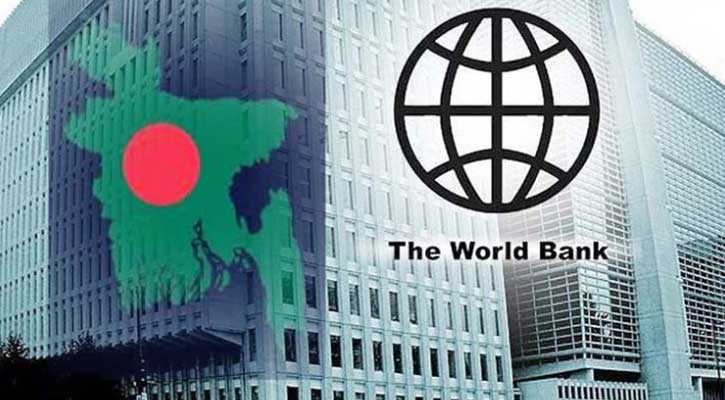The World Bank has projected that Bangladesh’s gross domestic product (GDP) growth may slow to 3.3% in the fiscal year 2024–25, primarily due to political uncertainty and financial stress. The forecast was released in the World Bank’s biannual report South Asia Development Update: Taxing Times, published on Wednesday, April 23.
The report also predicts that economic growth across South Asia will weaken due to rising global uncertainties. Regional growth is expected to drop to 5.8% in 2025, down 0.4 percentage points from the October forecast. However, the region is likely to rebound in 2026 with a projected growth of 6.1%.
Growth forecasts have been revised downward for most countries in the region. In this context, the World Bank emphasized that increasing revenue collection is critical to strengthening economic resilience and mitigating future risks.
Country-Specific Outlooks:
-
India: Growth is projected at 6.5% in 2024–25, declining slightly to 6.3% in 2025–26.
-
Afghanistan: Due to reduced international aid, GDP growth is expected to fall to 2.5% in 2024–25, and to 2.2% the following year — both figures are below the population growth rate.
-
Bhutan: Weakened agricultural output is likely to result in 6.6% growth in 2024–25, improving to 7.6% in 2025–26 driven by hydropower investments.
-
Maldives: Economic growth could reach 5.7% in 2025 following the opening of a new airport terminal, though concerns remain over external debt repayments.
-
Nepal: Natural disasters such as floods and landslides are expected to bring growth down to 4.5% in 2024–25, with a moderate recovery to 5.2% in 2025–26.
-
Pakistan: Overcoming external pressures and inflation, the country is forecasted to grow by 2.7% in 2024–25 and 3.1% in 2025–26.
-
Sri Lanka: Following debt restructuring progress, GDP growth could reach 3.5% in 2025, slightly dipping to 3.1% in 2026.
Structural Issues and Policy Recommendations:
The report highlights the need for sustainable economic stability through enhanced domestic revenue generation. While tax rates in South Asia are comparatively high, actual tax collection remains low. From 2019 to 2023, average government revenue in South Asia stood at only 18% of GDP, compared to 24% in other developing countries.
The low tax-to-GDP ratio, ranging from 1% to 7%, is attributed to the dominance of informal economies and agriculture. Despite these challenges, significant gaps remain in tax collection, underscoring the need for reforms in tax policy and administration.
Franziska Ohnsorge, Chief Economist for the South Asia Region at the World Bank, noted: “Low revenues are a core driver of South Asia’s fiscal vulnerability and could jeopardize stability in an uncertain global environment.”
To improve revenue generation, the World Bank recommends:
-
Reforming tax systems
-
Closing loopholes
-
Simplifying tax codes
-
Leveraging technology in tax collection
-
Reducing exemptions
-
Introducing pollution taxes
These measures, the report suggests, are vital for ensuring long-term fiscal sustainability and boosting regional economic resilience.

